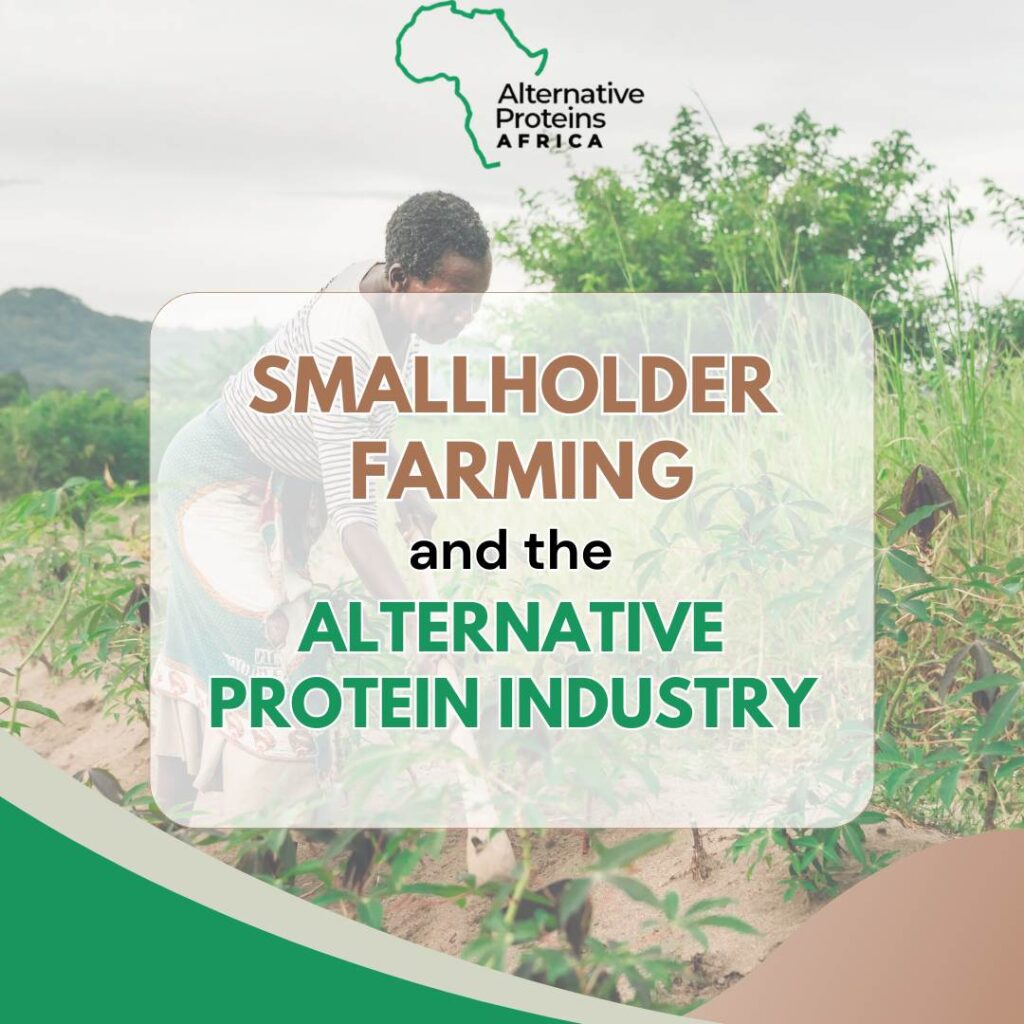
Globally, the food landscape is experiencing a major shift. Driven by health, sustainability, and ethical concerns, consumers are increasingly adopting alternatives to animal-source proteins. As a result, the alternative protein industry is poised to transform our food system, and it is critical to seize every opportunity available to this burgeoning industry. One of such is harnessing the significant benefits of smallholder farmers who make up a significant portion of the agriculture workforce in Africa. Likewise, contrary to popular belief, the industry provides excellent opportunities to these farmers. This article, therefore, examines the role of smallholder farmers in the alternative protein industry and the opportunities the industry provides to them.
What is smallholding farming?
Smallholding farming is usually defined as the cultivation of small-scale land, which typically ranges from less than one hectare to ten hectares. It is also known as family farming, as it often involves the use of family labour for production. Interestingly, smallholder farms are thought to be more technically efficient in terms of labour. Smallholding farming is common in developing regions like Africa. In an analysis carried out by the Food and Agricultural Organisation, it was highlighted that smallholding farming contributes to 63 and 69 percent of food production in Kenya and Tanzania, respectively. Smallholders, therefore, play an important role in the continent’s agricultural industry.
What are the roles of smallholder farmers in the alternative protein industry?
Smallholder farmers grow essential crops such as legumes, grains, and nuts, which are important sources of plant-based proteins and raw materials for the alternative protein industry. For instance, plant-based meat alternatives rely heavily on these protein crops. By supporting smallholder farmers in the production of these crops, the industry can secure a reliable source of ingredients.
Furthermore, smallholder farmers are well-positioned to cultivate these crops, often already possessing the necessary land and basic agricultural knowledge. This indigenous knowledge and use of local techniques have been identified to contribute to the ability of these farmers to mitigate perceived adverse environmental conditions for farming activities in Sub-Saharan Africa.

What are the opportunities for smallholder farmers?
Investing in alternative protein production also presents opportunities for farmers. The industry allows farmers to explore the potential of underutilised crops with high protein content, thereby diversifying their revenue options further. As alternative protein consumption rises, the demand for these ingredients will follow suit. As a result, smallholder farmers will have access to new markets both locally and globally, increasing their income.
Also, integrating alternative protein production can enhance sustainability. Alternative protein production often goes hand in hand with sustainable farming methods like crop rotation. These practices can improve soil health and fertility, thus reducing reliance on chemical fertilisers.
What are the existing challenges?
The path to smallholder farmers’ participation in alternative protein production is not without its challenges. One of the most significant challenges is the gap in adequate knowledge, skills, technologies, and infrastructure, including storage and processing facilities. Adequate training and resources are vital to helping smallholding farmers effectively adapt to alternative protein production.
Financial constraints are another major challenge. Investing in new technologies and practices requires sufficient capital, which many smallholder farmers lack. Limited access to credit and funding further exacerbates the situation. Also, small-scale farmers often find it difficult to navigate supply chain hurdles. Equitable access to markets and fair compensation require robust infrastructure and support systems, which are often not available to these farmers.
What should we do?
Despite the aforementioned challenges, we can take steps to ensure smallholders reap the benefits of the plant-based transition. Support from governments and relevant organisations, including research on suitable crops and sustainable farming methods specifically tailored for smallholding farmers, is crucial. Also, financial aid (such as incentives, credits, and subsidies), training programmes, and investment in infrastructure development can empower smallholder farmers.
Furthermore, we cannot overstate the importance of meaningful partnerships and collaborations. Collaboration between non-governmental organisations, relevant stakeholders, and research institutions can provide smallholders with the necessary resources and knowledge. It is also important that these farmers have equitable access to the market so that they can benefit from this transition.
In conclusion, the possibilities for growth of the alternative protein industry in Africa are vast, as are the unique opportunities for smallholder farmers. By providing them with the necessary support and fostering an environment of collaboration, the industry has the potential to become a powerful driver of sustainable food production, improved livelihoods for smallholder farmers, and a more equitable global food system.

